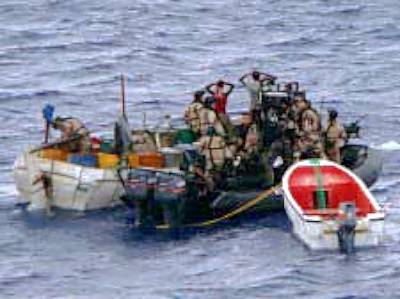WASHINGTON, June 28, 2011 — Army Gen. James D. Thurman told the Senate Armed Services Committee that he would work to strengthen the U.S.-South Korea alliance amid provocations and uncertainties from North Korea.
Thurman testified today as part of his confirmation hearing to become the top allied commander in South Korea.
Thurman currently leads U.S. Army Forces Command. If confirmed, he will succeed Army Gen. Walter Sharp as the commander of United Nations Command, Combined Forces Command and commander of U.S. Forces, Korea.
Over the last year two notable provocations have increased tensions between North and South Korea. The North sank the South Korean naval vessel Cheonan, killing 46 South Korean sailors in March 2010. In November, a North Korean artillery barrage that targeted the island of Yeongpyeong killed two civilians and two South Korean marines.
Officials said the provocations were likely caused by Kim Jong-un, the youngest son of North Korean dictator Kim Jong-il, trying to cement his claim as the successor to his father.
North Korea’s economy is in shambles and the country is a pariah in the world. Yet it remains dangerous. In prepared testimony, Thurman noted that North Korea retains the fourth-largest military in the world, with more than 1 million active duty troops and 5 million reservists.
More than 70 percent of North Korea’s military forces are arrayed along the De-militarized Zone. North Korea has stationed up to 250 long-range artillery guns that could strike the South Korean capital of Seoul — one of the world’s great metropolitan cities with almost 25 million people.
Yet, North Korea’s military capability is declining. North Korean tanks are no match for U.S. and South Korean weapons systems, said Thurman, noting that North Korea has more than 1,700 aging aircraft, 800 naval vessels and 13,000 artillery systems.
Nonetheless, though North Korea’s weaponry may suffer from neglect and its troops may be poorly trained, there are many of them, and sheer numbers, too, can provide a military capability, the general said.
The North Korean nuclear program also poses a grave concern on the peninsula, Thurman said. North Korea continues to develop its nuclear capabilities, revealing earlier this year that it has an operational uranium enrichment facility. The North Korean regime has worked to proliferate nuclear and missile technology to Iran, Syria and others. Thurman said that he will work to see if he can strengthen the proliferation security initiative on the peninsula.
Thurman said there are both challenges and opportunities on the Korean peninsula.
“Recognizing that a strong United States-Republic of Korea alliance is one of the most important factors for maintaining peace and security on the peninsula and in the region at large, I will — if confirmed — continue the work of my predecessors directed at sustaining strong ties with our Korean partner,” he said.
Source:
U.S. Department of Defense
Office of the Assistant Secretary of Defense (Public Affairs)

 von
von 